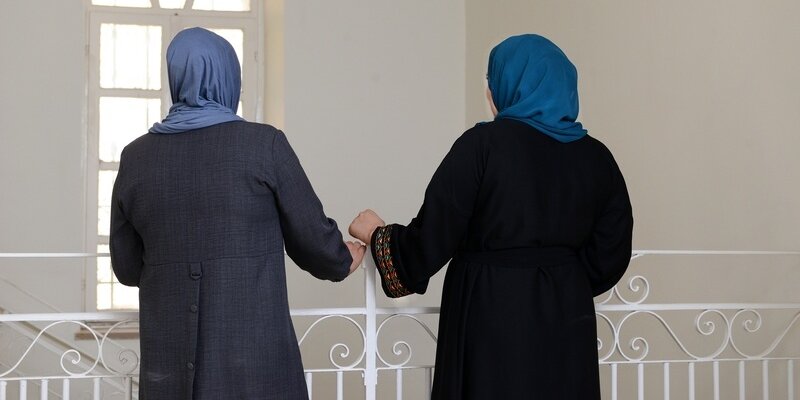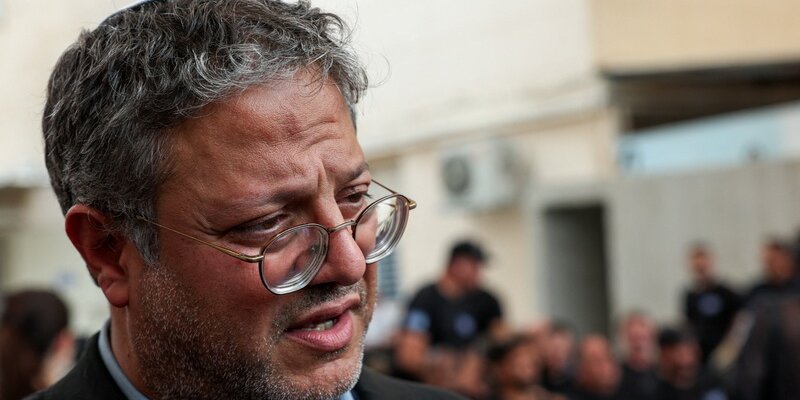Nova Survivors’ Struggles to Get Their Lives Back on Track
Two years after the massacre, survivors of the Nova music festival are still fighting: severe post-trauma, drug addictions, exhausting medical committees and a health and welfare system that is neglecting them. While the state hands out nothing more than temporary allowances and insensitive bureaucracy, NGOs and communities of volunteers are assisting those affected. But they lack expertise and experience – and in some cases even create new problems: ‘I fought to survive and now I feel like I’m fighting everyone.’ The Nova Tribe Community Association: At every event, we urge folks not to use drugs, but in some circumstances we are unable to enforce this.’ A Shomrim investigation, published jointly with N12 Magazine
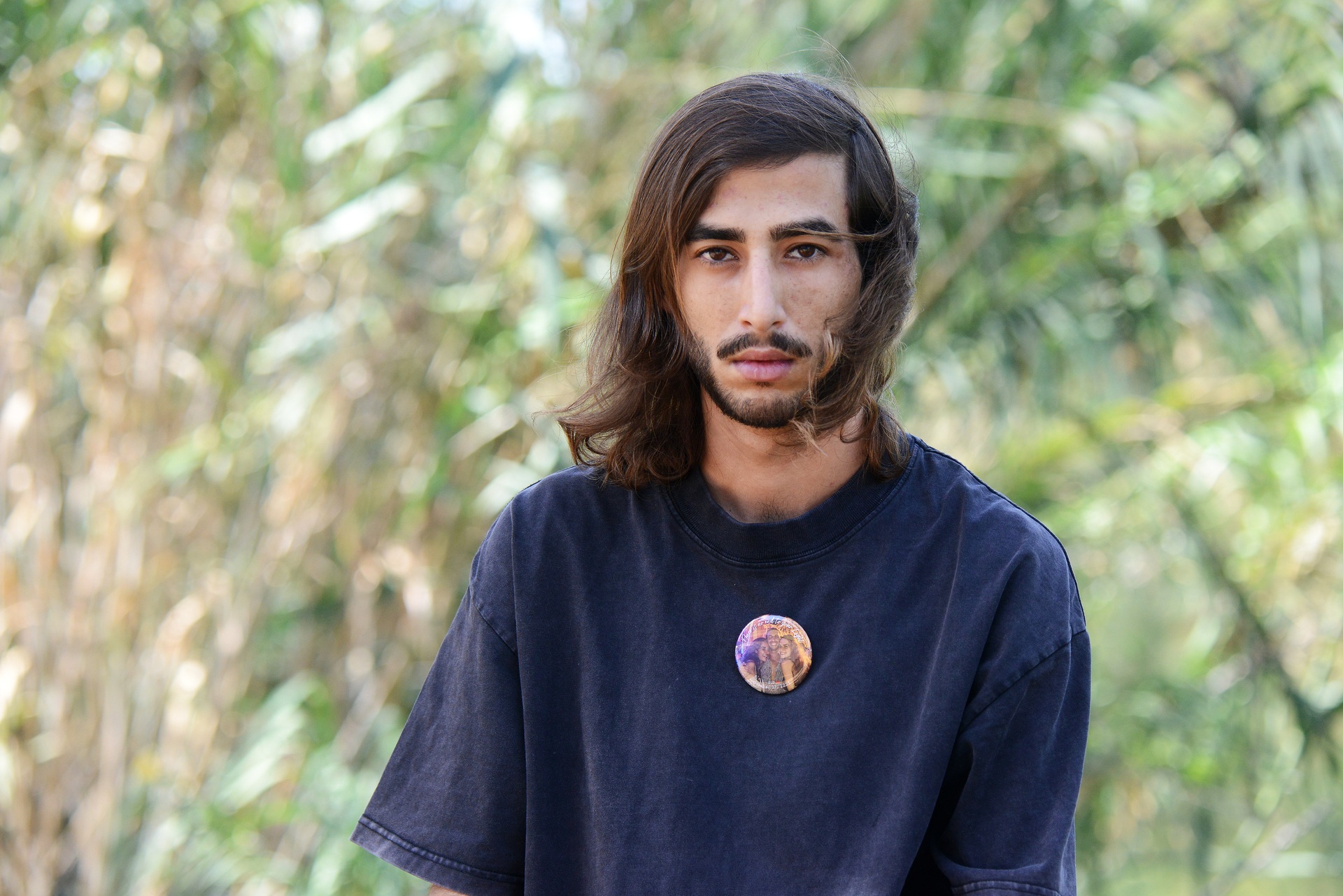

Two years after the massacre, survivors of the Nova music festival are still fighting: severe post-trauma, drug addictions, exhausting medical committees and a health and welfare system that is neglecting them. While the state hands out nothing more than temporary allowances and insensitive bureaucracy, NGOs and communities of volunteers are assisting those affected. But they lack expertise and experience – and in some cases even create new problems: ‘I fought to survive and now I feel like I’m fighting everyone.’ The Nova Tribe Community Association: At every event, we urge folks not to use drugs, but in some circumstances we are unable to enforce this.’ A Shomrim investigation, published jointly with N12 Magazine

Two years after the massacre, survivors of the Nova music festival are still fighting: severe post-trauma, drug addictions, exhausting medical committees and a health and welfare system that is neglecting them. While the state hands out nothing more than temporary allowances and insensitive bureaucracy, NGOs and communities of volunteers are assisting those affected. But they lack expertise and experience – and in some cases even create new problems: ‘I fought to survive and now I feel like I’m fighting everyone.’ The Nova Tribe Community Association: At every event, we urge folks not to use drugs, but in some circumstances we are unable to enforce this.’ A Shomrim investigation, published jointly with N12 Magazine
Gal Haim, a Nova survivor. Photo: Eyal Itzhar
Yael Shani
September 25, 2025
Summary


Listen to a Dynamic Summary of the Article
Created using NotebookLM AI tool
“I’m almost 28, but I’ve been stuck for two years at the age of 26,” says Gal Haim, who survived the Hamas massacre at the Nova music festival by hiding in one of the concrete shelters – the so-called Death Shelters, where dozens of young Israelis were killed or taken hostage – near Kibbutz Re’im. “I went to the party with my two cousins – Norel and Roya Mansuri – my best friend, Amit Cohen, and another girl. That girl and I were the only two who survived. I haven’t started living again since then. I have appeared in front of two National Insurance Institute mental health committees to determine the level of my disability – and there’s another committee scheduled, too. Every meeting like that takes me back to that day and because they are always temporary committees, the sense is that they do not want to recognize us.”
The morning of October 7, 2023. Thousands of young people who had travelled to southern Israel for the Nova, Psyduck and Midburn festivals experienced something that even now is hard to fathom. The music, the lights and the freedom were brutally replaced by screams, shooting and panic. Three hundred and seventy-eight people were murdered, 44 kidnapped and hundreds wounded; thousands of people are still going through a profound mental and emotional ordeal. A festival that was supposed to be a dance of life became a national trauma. Shomrim spoke to some of the young men and women who started the night enveloped in light and ended it in horrific darkness.
“My son barely escaped that inferno, but he hasn’t emerged from October 7 yet,” says Roni Katz, whose 30-year-old son Arad was at the Nova festival. “He is still living that accursed day. That’s why he has not left the house for the last eight months – he simply cannot rehabilitate himself here as long as the war is still going on. A lot of survivors still see their friends in that hellhole, they still see the murder. My son says that he can still smell the stench of the bodies they burned.”
The official figures show just how massive the problem is. According to a document drawn up at the request of the Knesset Public Petitions Committee, the National Insurance Institute has recognized 3,710 survivors of the Nova massacre as victims of enemy activity. Most of them are aged between 18 and 24. Around half have already appeared before a medical committee and have been given some official level of disability. Around 10 percent of them are waiting for treatment. One hundred and twenty-seven survivors have previously received psychiatric treatment, which makes their cases far more complicated. The Ministry of Health told the committee that, thus far, just one survivor of the Nova massacre had died by suicide – 22-year-old Shirel Golan [Since the Health Ministry’s report to the committee, Roei Shalev, another survivor of the Nova music festival, has taken his own life. Y.S]. In addition, it was reported that up to August 2024 three more Nova survivors had attempted suicide; they were all taken to hospital where their lives were saved.
Since that traumatic night, Nova survivors have been looking for a refuge, somewhere they can keep living, dancing and socializing. That is how, for example, the Nova Tribe Community Association, which was set up in late 2023 by the producers of the festival, has become a lifeline for some survivors. The association has created a dedicated space, the Lake TLV complex in a park in southern Tel Aviv, to be an official home for many of its members. Here, they host parties, activities and events for survivors and their families.
This collective embrace, however, conceals some very painful cracks. One of the most significant of them is drug abuse. According to some testimonies, due to a lack of supervision, some of the participants at these events – especially the raves – use drugs. It is important to note that for some of the survivors, drugs are not medicinal – they are a trigger: instead of dulling their feelings, they bring traumatic memories of that night flooding back and engulf them in the very pain that they are trying to evade. An environment in which people are using illegal substances creates a highly problematic challenge for them. It’s also important to stress that none of the organizations which treat survivors encourage the use of drugs. And yet, given the fact that drugs are not uncommon in this community, the lack of supervision indirectly exacerbates their distress.
“My problem with the raves is that participants’ use legitimizes the drug. I went to a few of them and then decided to distance myself,” says one survivor who prefers to remain anonymous. “I fell into [drugs] after October 7 and I don’t want to fall back there. And I wasn’t the only one: survivors keep on falling and falling, because doctors don’t know how to deal with what we’ve been through. At the overseas retreats, too, participants are using, which gives others the legitimacy to do drugs. All of the guys who come to these places are desperate for help and, as far as they are concerned, drugs are the solution.”
“I went to some of the Nova survivor parties and right away I saw loads of drugs there,” says Avi Medina, 30, who attended various events as a photographer. “I saw everything you can possibly imagine. One person was snorting and another was smoking bongs. Enough! Personally, I come from a home in which both my parents were addicts, so I am totally repelled by it. But irrespective of my personal story, it’s something that really shouldn’t be happening. There are some places where drugs should not be allowed,” he adds.
“Survivors experience emotional pain just as strongly as physical pain and they take drugs because they think it will liberate them, says Roni Katz, who worked for 10 years in a school for at-risk youth and who shares what she heard and saw when she went to one of these parties with her son. “They simply don’t know how to deal with things and instead they tell themselves that ‘Drugs are good for me because I want to escape.’ But the survivors are also at a highly vulnerable point, where the effect of drugs could be catastrophic. I was in touch with one female survivor who started using drugs and, in the end, found herself living in the street. It can snowball: you take drugs, don’t work and you keep falling.”
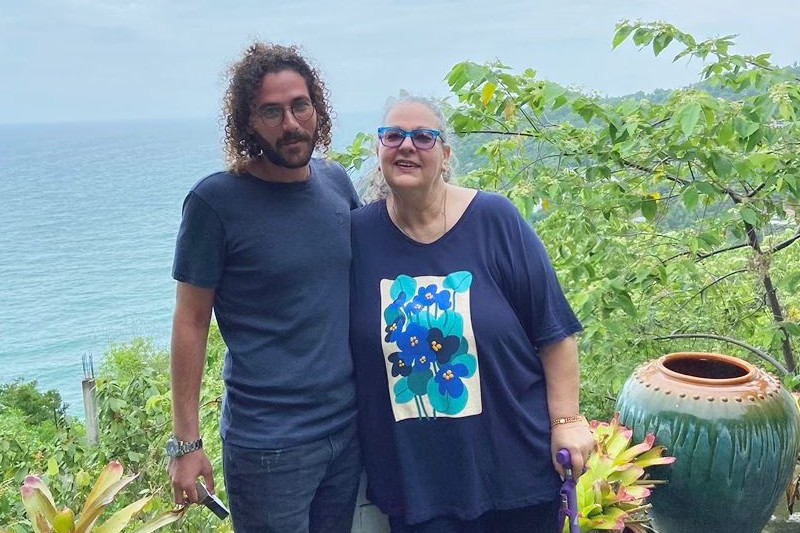
“My son barely escaped that inferno, but he hasn’t emerged from October 7 yet,” says Roni Katz. “He is still living that accursed day. My son says that he can still smell the stench of the bodies they burned.”
“Saying ‘We shall dance again’ could confuse young people”
“You have to understand that [committing] a massacre at a trance party – right in the middle of a space that beats with belonging, connection and togetherness – goes against every fundamental value of these people and tears the community apart from within,” says Merav Gili Hirsch, the founder of Tribe and Slowness Tribe, two organizations that are helping survivors with their individual and communal rehabilitation, who also works with the Home Base organization, which helps survivors get everything they are entitled to.
Hirsch has been accompanying survivors since the first few days after October 7. “I understand why they are so determined when they say ‘We shall dance again’ – and why it’s so important to them – but I think it could confuse a younger population, which sanctifies that value above all others, instead of seeing it as one path alongside other important routes for growth. Moreover, it is possible that the commandment to ‘Dance again’ at any price is actually making the problems worse. I understand the importance of community meetups. I cannot say whether they help reduce the [drug] problem or whether they do the opposite and legitimize it.”
The people involved in treating survivors who spoke to Shomrim stress that the problem of drug use at these events is not the result of some mysterious influence; rather, they say, it is primarily an issue of lack of supervision. Omri Frish, who founded and has run the Kfar Izun holistic treatment center for the past 25 years, says that he treats young people in crisis, many of whom are suffering from PTSD as a result of their military service. “Two days after October 7, we understood that everyone has to help carry the burden. We recruited 220 volunteer therapists, all of whom had experience treating trauma, and we launched Izunova, which was active for two months.” Frish adds that “the initiatives that were launched in the aftermath of October 7 were great and are doing important work,” but he bemoans the lack of professional supervision. “All of the centers which deal with treatment, rehabilitation and healing ought to be supervised by the state.”
Frish is indirectly alluding to the fact that, while most of the organizations operating in this field in Israel do not receive state funding – or, at best, get minimal budgets – the Nova Tribe Community actually enjoys rather generous funding from the State of Israel: At the end of May 2025, the Ministry of Welfare announced that it was extending its contract with the organization and would allocate 2 million shekels a year to its funding. The goal is to allow the Nova Tribe Community to open and expand a treatment center for Nova survivors, which would focus on strengthening resilience and providing communal-rehabilitative treatments. Last year, the state funded the association to the tune of 1 million shekels.
The current funding was justified by the claim that the organization is a “sole supplier,” but various people involved in the field argue that this is far from being the case. The ministry even sent a letter recently naming a long list of organizations that work with survivors, including the Future For the Survivors and the Wounded organization, Midburn, Safe Heart, Tribe, Izun Arena, the Risphon Healing Farm, Good Earth and the Israeli Trauma Coalition.
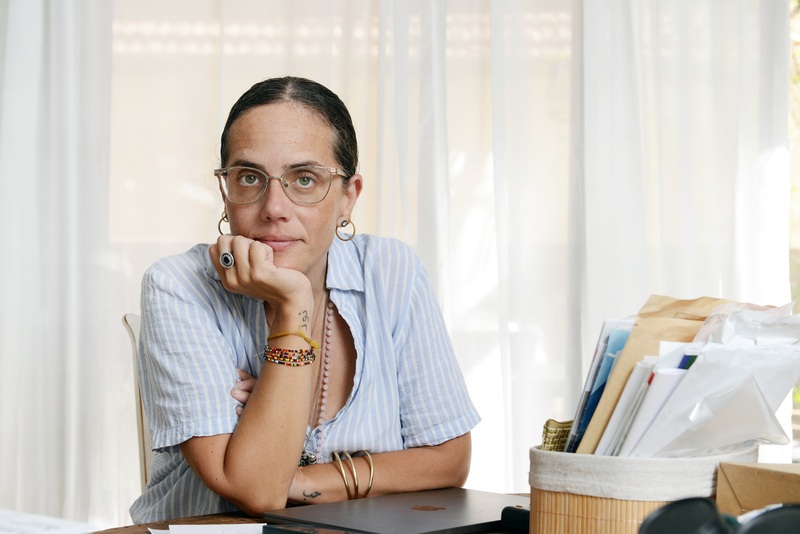
“A massacre at a trance party – right in the middle of a space that beats with belonging, connection and togetherness – goes against every fundamental value of these people and tears the community apart from within."
Survivors have to reopen the wounds every time
Two years after the massacre, survivors and their families complain that they have been left to deal almost alone with the daily ramifications and the exhausting bureaucracy that the National Insurance Institute puts them through. In the weeks after October 7, survivors received a one-time payment of 17,000 shekels, except for soldiers in compulsory service at the time. In addition, thanks to the standard trauma procedures, they were also allocated a basket treatment and rehabilitation that included 36 psychological treatments with certified therapists and the possibility of getting special approval for an additional 12 treatments.
The Jewish Agency Fund for Terror Victims also gave an initial payment to anyone who was hospitalized for more than 24 hours and a supplementary rehabilitation payment of 25,000 shekels for any survivor who was deemed to have a 20 percent of higher disability level resulting from a terror attack. Beyond this, thanks to the public committee headed by Prof. Aviad Hacohen, Nova survivors who choose not to go down the path of disability as the result of a terror attack via the NII or the Ministry of Defense are entitled to a payment of 28,000 shekels, as well as up to 30,000 shekels in reimbursement for expenses incurred during the rehabilitation process.
At first glance, this may sound like a significant sum of money, but many survivors say that it doesn’t even cover the treatment that they need. In addition, they say that the bureaucratic process for being recognized as disabled is long and exhausting. To be recognized, they have to appear before several NII medical committees; some say that they have been called to four such meetings in the past two years. The reason, they say, is that the committees only issue temporary recognition, which needs renewing.
Beyond the aggravation of testifying so many times – and the pain involved in reopening those wounds – the survivors say that their situation is frustratingly unclear since, at any point in the process, the NII could decide to lower their disability level. In addition, survivors say that some of these medical committees were held without them and they only found out about them in retrospect.
“At first, my son was given 40 percent disability and then, a month ago, there was a medical committee meeting that he did not attend because he was overseas – and they lowered it to 20 percent without any explanation,” says Roni Katz. “Now it’s up to us to appeal the decision. For survivors, going through that bureaucracy each time, telling the story of how they survived to members of the committee – it triggers them each time anew,” she adds, adding that her son’s condition has not improved over the past two years.
“How can a psychiatrist, who doesn’t understand the first thing about what it’s like to survive a massacre, decide that Arad’s condition has improved after two years? He didn’t go overseas because he wanted to travel; he simply couldn’t be in Israel anymore. When he was in Israel, he barely got out of bed for a whole year. The anxiety was a daily thing. I went back to being the mother of an infant, checking every moment to make sure he was still breathing. When they cut his stipend, he told me, “Mom, I don’t want to come back to this country. This is the second time it’s betrayed me’.”
“I was one of the only people in the shelter that day who was still conscious. There were 40 of us; 27 were murdered and one was kidnapped,” Gal Haim says. “I saw my best friend take a bullet to the head. I lay there for hours under a pile of bodies. For hours, no one came. In the end, we were rescued by a police officer who had come to save another officer from terrorists and by chance he heard survivors in the shelter. In that situation, I felt like I had been abandoned and I feel that they’ve continued to abandon me for the past two years. The committee members don’t care what I went through. They ask, ‘Why aren’t you working?’ They simply don’t understand what the problem is.”
“A month ago, my son had a committee and was given 50 percent disability, even though he has a letter from an occupational physician confirming that he is 100 percent unable to work,” says one woman whose two sons, aged 25 and 32, both survived the Nova massacre. “Based on his disability percentage, he’s only supposed to get 2,800 shekels a month.” As if that were not enough, she adds, “since October 7 he’s served more than 200 days in the reserves. And he just got another emergency call-up paper.”
Her son, she says, is not in a good state. “He has moved back in with me, he hasn’t worked for two years and he does not have a partner… From a happy person who loved going to parties, he’s become a nervous wreck, shouting constantly and smoking a lot.” What makes it even harder for either of her sons to rehabilitate themselves, their mother adds, are the constant NII committees. “My son was only given 20 percent disability, because he’s working. The little one is working and was denied a higher disability level, while the older one isn’t working – and also wasn’t given the disability level he deserves.”
Ofer Shahar, whose 30-year-old daughter Yuval survived the massacre, agrees that the repeated summons to NII committees is harming the survivors. “Yuval was celebrating her 28th birthday at the Nova festival; she invited all of her friends and some of them did not return. For the first 10 months, it seemed that everything was fine. Then, one night, we got a phone call from Soroka [Hospital], telling us to come urgently. She had suffered a severe panic attack and was in and out of hospital for three months.”
Because of her emotional state, the NII gave Yuval a temporary 90-percent disability level – which is due to expire at the end of this year – but even that involved several committees. “I don’t believe that the system understands revisiting the trauma that these people experienced time and again is very triggering,” Shahar says. “I suffer from PTSD because of my service in the first Lebanon War and I know that having to tell a psychiatrist the whole story reopens the wounds each time.”
How is Yuval now?
She looks the same from the outside, but, on the inside, everything’s changed. She’s not the same girl she was.”

‘We appeal almost every committee ruling’
“The raves were a very significant part of the massive collective trauma, because the intensity and exposure were extreme,” according to Dr. Tuval Gendelman, director of the Hofim Psychiatric Youth Day Treatment Center at the Tel Aviv Medical Center, who has treated dozens of survivors. “We have a tendency to talk about one single trauma, but the truth is that the survivors experienced thousands of traumatic incidents in just a few hours. We have treated people with significant overstimulation, dissociative symptoms, outburst of rage and other conditions. Some of this is because of their young age and the fact that they experienced extraordinary trauma, during which they felt a total loss of control.”
Gendelman explains that most of the Nova survivors are suffering from chronic PTSD. “These temporary allowances have lost all medical significance. The NII, which wants to prevent them from becoming chronic patients, says, ‘Let’s give them temporary allowances.’ The problem is that this generated the opposite experience.
“I had one patient who was working in five jobs – and was fired because of PTSD – and he’s afraid it will be recorded and he’ll lose his allowance,” Gendelman says, before also highlighting the dangers of having too many NII committees: “They are triggering for the survivors. They have to collate documents, psychiatric evaluations and other things for each committee meeting – and those who are less functional can’t even make it in person.
“A month and a half ago, I accompanied someone to their first committee meeting, someone who did not even have a temporary disability allowance because he had not stepped foot outside his house for two years. Now he’s asking for help because his parents can’t cope. There’s a lot of pressure to prove that you can’t function; if you can, you might get a 20-percent disability allowance and if you can’t – you could get up to 50 percent. They have created a disincentive to rehabilitation.
“A lot of my patients have told me that, over the past few months, many committee meetings have taken place without them being present and that their disability levels have been reduced. Two months ago, I was approached by a Nova survivor – the worst case I have seen, with extreme symptoms. He wasn’t sleeping for more than two hours a night and he was totally disconnected from the outside world. He was supposed to appear before the NII committee, but that morning he woke up and suffered an anxiety attack and couldn’t attend. In my report, I wrote that these were the worst symptoms I had witnessed to date. The committee met without him and cut his disability to 20 percent. He’s worried that he will have an incident and could kill someone.”
A group of parents of Nova survivors recently wrote to the National Insurance Institute about the number of committees their children are forced to attend. Tal Wolmark, who initiated the and drafted the letter, tells Shomrim that “my daughter is about to have her seventh committee meeting. Each time, she is forced to tell her story again. It’s not a normal situation. The first-level committees are the ones that determine the disability level. We appeal almost every committee ruling.”
“When you attend these committees, it’s like you’re being tested; it’s an intrusive experience that feels like an interrogation,” says Reut Plonkser, deputy head of the SafeHeart organization and head of its clinical operations. “We’ve seen the NII reduce financial support recently and this is extremely traumatic for the survivors. I suspect that the state just hopes that, over time, people will get back to their lives – but the trauma is extreme. The survivors feel like they are falling between the cracks again and being left alone – and that brings back memories of October 7.”
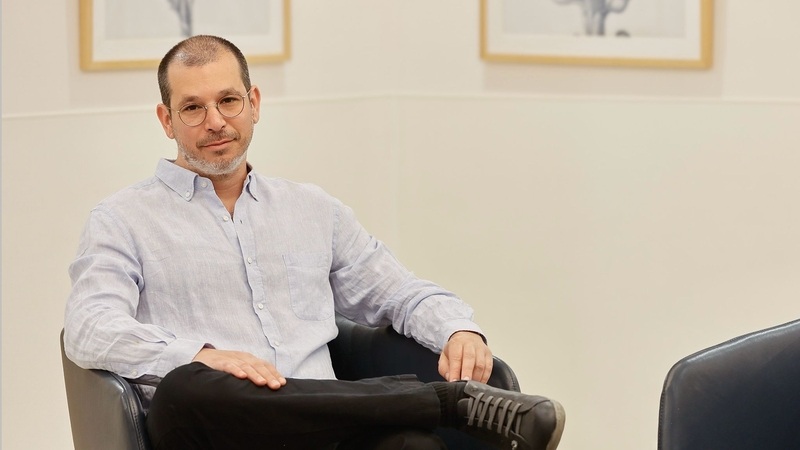
‘The state was absent – and it still is’
There is one point on which all of the survivors and parents with whom Shomrim spoke agree: the vacuum that the state left behind has been filled thus far by NGOs. Since the first day of the war, they were first to snap into action and they continue to accompany the survivors and their families. This includes personal psychological care and special events and activities that give them a sense of community and security. “Sadly, not a single representative of the government has approached us, the parents, over the past two years,” says Yuval’s father.
“The NGOs taught us parents how to fight the bureaucracy and also who exactly we need to approach. In the days after the Nova massacre, there was a sense of helplessness. It was the SafeHeart organization that contacted us to offer psychological treatment and we’re still going, but that was not provided by the state,” adds Ofer, unable to conceal his disappointment. “Does anyone care that we have collapsed financially? The state let us down big time. And the NGOs stepped in to help with our disappointment.”
“We have given to the state our whole lives and now that we need it – it’s not there for us,” says one deeply disheartened mother of two Nova survivors. The state was absent – and it still is,” adds Ofer, Yuval’s father. “No one thought to contact us – not the government ministries and not the local council’s welfare department. What are they waiting for? For people to take their own lives?”
“You might not be able to see from the outside what’s happening with us survivors,” says Gal Haim, “but on the inside – most of us are hollow. Even when we smile, nothing is genuine. I fought to survive and now I feel like I’m fighting everyone.”
Nova Tribe Community Association response
‘We took upon ourselves the responsibility of being on the front lines and helping’
“The Nova community was the largest community affected by the October 7 massacre and includes thousands of people from different backgrounds, ages, socioeconomic backgrounds and places of residence - from every part of the country. Among the members of the community are survivors of the Nova, Mushroom, Psyduck and Midburn festivals, many of whom suffered physical and emotional damage; bereaved families; former hostages and their families – all of whom are dealing with severe loss, deep trauma and ever-changing and ongoing challenges.
“The Nova Tribe Community Association was established by survivors some two months after the massacre, given the understanding and recognition that the massive needs of the people affected, a large and diverse community, are not being fully met by anybody. These needs are many and constantly changing, as are the solutions. The community’s need and the commitment to finding long-term solutions by itself, rather than waiting for assistance to arrive, was and remains at the heart of the association’s activity.
“The association grew organically from the ground up and over time it expanded and standardized its activity. Today, it is a central body providing support to the community. We took on the responsibility of being on the front lines to help members of the Nova community and, at times, this exposes us to pain and anger that, in the absence of another address or a formal governmental solution, is directed specifically at us. We respect, and at times share in, this sorrow and frustration and we do everything in our power to provide solutions. We must emphasize that we do not have all the solutions and the association is not a therapeutic organization; rather, it assists using collaborations, connecting people and making information and resources accessible. Our work saves many lives and has even prevented many people from dying by suicide.
“A study by the Israeli Center for Addictions reported that the communities most vulnerable to addictions include people who were directly exposed to trauma following the October 7 attacks. Since its establishment, the association identified patterns of increased substance abuse and self-harm, including suicide attempts. In response, the association set up projects with experts from the fields of addiction and suicide. These projects, in cooperation with the Welfare Ministry, ICA, the Eran and Sahar mental-health associations, the National Lottery, the Words That Make a Difference association, Prof. Anat Klomek and others, are aimed at providing the association with the tools to reduce or prevent substance abuse and offer methods for coping with suicidal situations.
“At every event, a representative of the organization urges folks not to use drugs, but in some circumstances – for example, when someone has a license for medical marijuana – we are unable to enforce this. Since the start of 2025, we have changed the focus of our activity; we have cut the number of community days and launched around 40 projects which have led to more significant change for the community: we have invested in sports projects which entail regular attendance, such as a soccer team, windsurfing, swimming, footvolley and basketball, in order to encourage a healthier lifestyle.
“The association also founded the Mentorship Program for Survivors, which created a real impact on the community of party survivors. Today, there are 200 graduates who serve as ‘big brothers and sisters’ to party survivors, accompanying other survivors and helping them start a new path. The association invests in healing spaces, the purpose of which is to create safe environments. As part of the support provided to the community, we are also developing projects to build community resilience, leading to the creation of dozens of sub-communities. The association has social workers who provide support to over 200 individual cases on a monthly basis.
“We see the impact, including the fact that more than 100 survivors were saved from suicide and dozens of survivors were weaned off addictions. The association is not involved in activities in Cyprus and does not organize parties. The association holds dozens of annual activities for bereaved families to bolster their spirit, to which only family members, not survivors, are invited.
“The Ministry of Welfare announced that it would allocate the association 1 million shekels in 2024. The budget was actually transferred in 2025 and its purpose is to assist the survivors and the association with a range of social issues, including maximizing rights and providing access to social and welfare assistance. The ministry announced it would increase the allocation for the next two years; the amount has not yet been finalized, and the money has not yet arrived. The association does not claim exclusivity on any matter. The Ministry of Welfare grant constitutes a small percentage of the association’s budget (which is largely based on donations).”
The Ministry of Welfare and Social Affairs response
“The Ministry of Welfare is responsible for the governmental response for party survivors and operates a broad array of services, in cooperation with 13 organizations and associations, under the framework of the Yuvalim initiative. As part of this, we have a contract with the Nova Tribe Community Association, which coordinates the individual and community events and services for survivors.
The contract was entered into through a ‘sole source’ mechanism – after being duly approved by the ministry’s Tender Committee, with the accompaniment of legal counsel and the accounting unit – and meets all required conditions. We clarify that this is one of several associations and organizations operating and being funded by the ministry, in accordance with the needs of the survivors and the various forms of support.”
National Insurance Institute response
“The National Insurance Institute holds medical committees because this is the legally mandated way to assess the medical condition of those who have been through the worst.
“Since October 7, there have been more than 75,000 civilian terror victims – and no one person is like another; every person is a world unto themselves.
“The physical and emotional injuries differ from person to person, as do the coping methods. As stated, this is the method determined by law, both for civilian victims and for those injured from the security forces and the IDF.
“It should be noted that anyone recognized by the medical committee is entitled to a dedicated rehabilitation worker, a fixed allowance and a rehabilitation package that includes reimbursements for medical treatments, complementary medicine, alternative medicine, support groups and more.
“The National Insurance Institute holds ongoing conversations and meetings with both the parents and the victims throughout this entire period and will continue to accompany and assist them at all times.”






